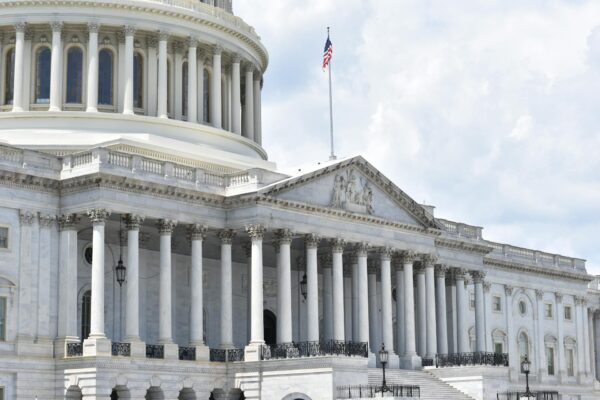
U.S. Capitol (Photo: Gagan Kaur)
Congress passed a short-term funding extension, avoiding a partial government shutdown set for the end of the week. As of yet, Veterans benefits are not expected to be affected at least through March.
The House voted 314-108, with opposition from Republicans. The Senate overwhelmingly supported the measure with a vote of 77-18. The bill extends current spending levels until March 1 for some federal agencies and March 8 for the remainder, providing more time for negotiations on full-year spending bills for the fiscal year that began in October.
President Joe Biden is expected to sign the resolution, but White House Press Secretary Karine Jean-Pierre urged House Republicans to focus on passing bipartisan full-year funding bills. The House Freedom Caucus expressed strong opposition to the measure, criticizing it for enabling more spending than they support. Despite internal divisions among Republicans, about half of them joined Democrats in passing the third stopgap funding measure in recent months.
Speaker Mike Johnson, facing pressure from conservative members, maintained his commitment to a $1.66 trillion budget deal reached with Senate Majority Leader Chuck Schumer. Some Republicans, like Rep. Chip Roy, criticized the continuing resolution, emphasizing concerns about excessive spending.
The vote highlights internal Republican disagreements, with 107 House Republicans supporting the funding extension and 106 opposing it. Johnson’s leadership has faced challenges, but centrists in the party stood behind him, arguing that changing course would weaken the speaker in future negotiations. The ongoing budget disputes among Republicans date back to the start of 2023, leading to the removal of former House Speaker Kevin McCarthy.
The current schedule raises concerns about potential government funding lapses, with lawmakers leaving for a 10-day break and limited legislative days before the March 1 deadline. House Republicans, who vowed not to pass an omnibus funding bill, have been entangled in negotiations over the $1.66 trillion budget, causing delays and increasing tensions.
The blame for the slow progress has been attributed to leadership changes, internal party conflicts, and a lack of urgency. Johnson’s efforts to balance the demands of his party’s factions have prolonged the process, with critics accusing him of fearing far-right lawmakers.
The challenges persist as lawmakers strive to pass full-year spending bills, negotiate a security package for Ukraine and Israel, and address border security concerns. President Biden has requested a $110 billion package for wartime spending and border security.
While there is a broad agreement among lawmakers to complete their work, the disjointed schedule and disagreements over budget allocations hinder progress. The need for another short-term bill in March to defer final decisions into spring remains a possibility, as struggles within Congress to meet funding deadlines and pass spending bills continues.













